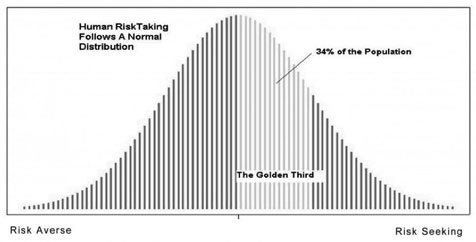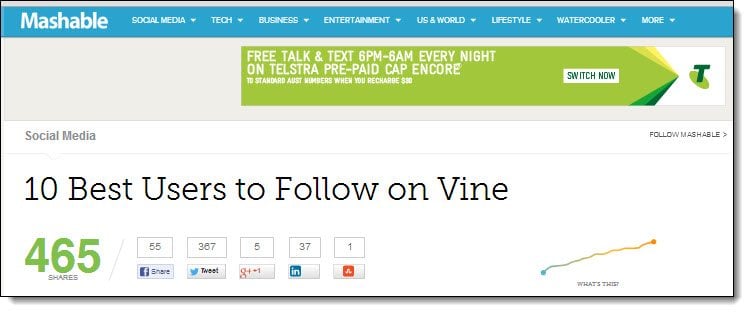Some Great Advice From Porter Gale
Check out Social Media Success FaceBook Page https://www.facebook.com/MichaelBev50? keep in touch & like the page while there! I will always reciprocate

Ever wondered how you can use transformational marketing in this new digital age to increase your net worth? Well Porter Gale the Former VP of Marketing for Virgin America shows you how.
The following is an excerpt from Your Network is your Net Worth: Unlock the Hidden Power of Connections for Wealth, Success and Happiness in the Digetal Age. By Porter Gale, former VP of Marketing for Virgin America.
The 13 Steps to Transformational Networking

1 – Assess the barriers that are holding you back
Your first step in transforming your network is to assess and define the barriers that are holding you back. Do you need to break a habit or routine? What is keeping you from connecting or reaching your goals?
Develop a list of your potential barriers. If you have a long list, don’t worry. Just focus on one at a time. Addressing them will help you experience positive change and make connecting with others an easier and more enjoyable process. Take action, start a conversation when you’re feeling uncomfortable, or ask someone to join an activity: the results may happily surprise you.
2 – Define your core passions and purpose with the Funnel Test
With the Funnel Test you can review your passions and define a purpose to anchor your networking and ultimately help you increase your happiness and prosperity. Start by identifying three of your passions that clearly defines your core interests. The area where your three passions overlap is your sweet spot.
Next, write down how you are cultivating your passions and make a commitment to improve in these areas. Now come up with a with a selected word for your tone. Like a funnel, where the contents flow from top to bottom, envision all of your actions being influenced by your tone. Last, streamline your passions and create a purpose statement of less than twenty words that describes your purpose and use it to guide you down your chosen path.
3 – Create a mind-set of positive productivity
Positive productivity involves developing a mind-set of conscious effort to make the most of your time, connections, and relationships to increase your happiness, success, and true wealth. Try to
expand your circle of friends and professional allies; focus on networking opportunities, and positive productivity will help turn obstacles into growth situations.
Remember: In our global, networked economy, you can’t allow your social capital to lie dormant. Each day, to get more energy, be productive and active, and you’ll be unconsciously taking steps to build your future happiness. You’ll be surprised at how much you can accomplish if you take one step a day toward a personal or networking goal that you are trying to achieve.
4 – Develop a Give Give Get attitude
A key to value-based networking is helping others when you don’t expect anything in return. It’s not as easy as it sounds.
If you put giving back and helping others at the center of your networking and relationship building, you are likely to have more impactful and stronger relationships. By seeing networking as an opportunity to help people, you’ll discover that your actions change you for the better and help to transition out of negative states of emotion. Remember that the idea is “Give Give Get”; that is, put greater energy into giving than receiving. What you will find is that the giving will come back to you tenfold.
5 – Commit to shaking it up
Shaking up your routine and exploring new opportunities can change your life. Sometimes change is by choice and sometimes it is due to external circumstances. Regardless of where it comes from, it always has the potential to bring positive growth and learning.
Sometimes change is self-motivated, and sometimes it is a result of outside influences. It’s not always easy to predict, but when you anchor your core values and practice positive productivity, you will more successfully navigate the highs and lows of your journey. Look at ways you can proactively shake it up by changing your routine, trying events designed to meet new people, embracing unemployment (if it happens), and getting outside of your comfort zone.
6 – Accelerate your connections with technology
Technology has increased virtual intimacy and reduced the degree of separation between connections. New and old networking relationships may be just a tweet, a post, or an email away. Toss out the old ideas: networking is no longer about climbing a ladder to success with a Rolodex stuffed in a leather briefcase. A different networking strategy is paying dividends in our global, mobile economy: one that includes understanding your values, having a positive attitude, and connecting with collaborators for mutual inspiration, innovation, and support.
Embrace rather than shun the new online tools and social sites. If used properly, you can make new connections, improve your happiness, and impact your future prosperity.
7 – Cultivate relationships that support your purpose
As your network builds, the way you interact and treat your professional and personal colleagues, especially in your core circle, will have a dramatic impact on your ability to achieve your purpose and find happiness and success.
Your core circle affects how you spend your time and where you socialize, your networking success, and ultimately your happiness. Outside your core circle is your secondary circles, which have a highly important impact on your networking. Your goals are to build authentic, honest, emotionally based connections and to identify if you need any additional support or resources to help you realize your passions and purpose.
8 – Visit power pockets to accelerate networking
Look at environments, clubs, and events to see how they can accelerate or diminish your efforts and ability to live your passions and purpose. If you think of your network as a web of interconnected relationships, it is important to look at where you could get stuck and where you can accelerate your efforts.
Review the importance of your work space and the benefits of what I call “power pockets”: places and events that accelerate networking and support your passions or purpose. Think about your community or places that you visit for travel, identify two to three power pockets, and make an effort to visit or work out of a location that’s not your office. Remember that under the surface, there is learning to be had from every connection.
9 – Hone your connecting skills and learn from hub players
Create value and opportunity by embracing highly networked individuals who thrive at bringing people together. Hub players are the people at the center of the social or business sphere, and they excel at connecting themselves and others. If you are not a hub player or the idea of making small talk at a party makes your skin crawl, don’t worry; those skills can be learned and practiced over time.
When you reach out to a hub player, you’ll find the same dynamic that occurs when you meet a new friend, but with exponential levels of energy and feedback. If the two of you share professional interests and embark on a collaboration, get ready to discover new areas of learning and change.
 10 – Create content, products, or services to share your purpose
10 – Create content, products, or services to share your purpose
Having a mindset of being a producer will help you focus when generating content or developing products or services to increase your visibility, build your network, or increase your reach. The goal of being a producer is to add value to the collective good based on your passions and purpose.
As a producer, you should actively seek to create content, products, or services that support your passions. When you do so, those activities will often result in creative enjoyment, sharable assets, and possibly financial gain. The more you enjoy your producing process, the easier it will be for you to share your output and excitement with others.
11 – Develop partnerships to extend your reach
Reaching critical mass can be accelerated by connecting with core influencers, exploring partnerships, and unleashing the power of groups. Use your passions and purpose as a filter to focus your connecting efforts and achieve your goals.
Building your audience and the reach of your personal brand or message online takes effort, but the returns can be multifold. Classic brand-building techniques such as creating partnerships, identifying key influencers, combining press and social media, among others, can be used to target your message and build a following.
 12 – Learn to make successful asks.
12 – Learn to make successful asks.
Get your foot in the door, secure a meeting, or simply get advice; the Ask is a skill people hone over time. With the support of your network, learn to ask for help, move your projects forward and live your purpose.
Succeeding at the ask requires a blend of courage, passion for your work, preparation, innovation, and resilience. Also, remember that often magic doesn’t happen overnight. “Don’t leave before the miracle” is a phrase to remember as you focus on turning your passions and purpose into reality.
13 – Decide what brings you happiness and success: head, heart, or wallet?
Decide what brings you happiness and success: head, heart, or wallet? If your network is your net worth, what role do the people in your core and secondary circles play in your happiness and success? Do the contents in your wallet make you happy? Is happiness and success driven by what you know? Or who you know? Or both?
Remember to look inside first, outside second. Surround yourself with a values-based team, and creatively focus on living your passions and achieving your purpose. If you’re facing pivot points, get productive and don’t let your social capital lay dormant. Help others, be of service, and, remember, Your Network Is Your Net Worth.


























